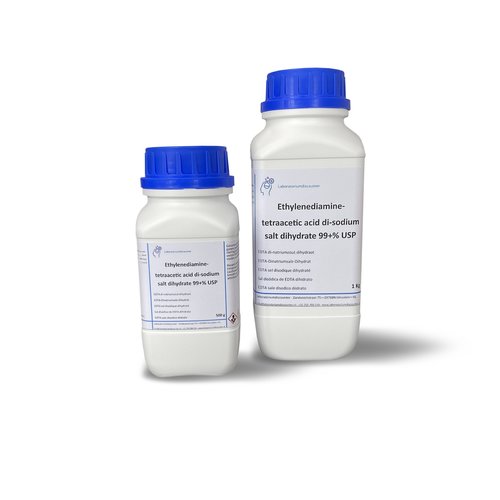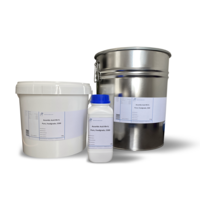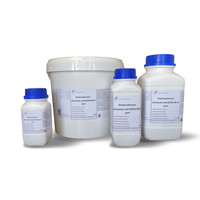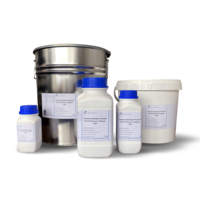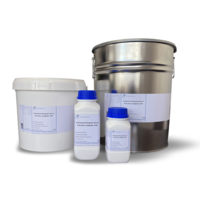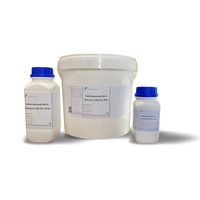You have no items in your shopping cart
Di-sodium EDTA 99+% Extra Pure
- Buy 2 and save 5%
Ethylenediaminetetraacetic acid (EDTA) is an aminopolycarboxylic acid and a hexadentate ligand. It chelates with metal ions, especially with cations to form an octahedral complex. Ethylenediaminetetraacetic acid disodium salt (EDTA) is a blood anticoagulant and contributes to the pathogenesis of pseudothrombocytopenia. It chelates with calcium in the blood and inhibits clotting and is routinely used in haematological tests. It enhances the antibacterial activity of lysozyme. EDTA used in chelation therapy chelates with calcium and promotes artery dilation, dissolving atheromatous plaques in atherosclerotic vascular disease. EDTA chelation therapy may also protect against oxidative damage during blood and lipid peroxidation in liver fibrosis.
Application
Ethylenediaminetetraacetic acid disodium salt dihydrate has been used in seed germination experiments of plant species and in protein extraction from Moss, Physcomitrella paten. It has also been used in lysis and vacuole buffer for the isolation of vacuoles from Petunia petals.
chelator of divalent cations. Inhibits enzymes, such as metalloproteases, which require divalent cations for activity.
Technical features:
EDTA disodium salt dihydrate, Titration complex III,EDTA disodium salt, disodium ethylenediaminetetraacetic acid dihydrate,Ethylenediaminetetraacetic acid disodium salt dihydrate.
Empirical formula C10H14N2Na2O8 2 H2O
Molar mass (M) 372.24 g/mol
Melting point (mp) 110 °C
CAS no. [6381-92-6]
EC-No. 205-358-3
Downloads
$$$$$
Hazard Statements
H332 Harmful by inhalation
H373 May cause damage to organs (respiratory system) through prolonged or repeated exposure (if inhaled)
Safety Recommendations
Precautions - Prevention
P260 Do not breathe dust.
Precautions - Response
P314 Get medical advice/attention if you feel unwell.

